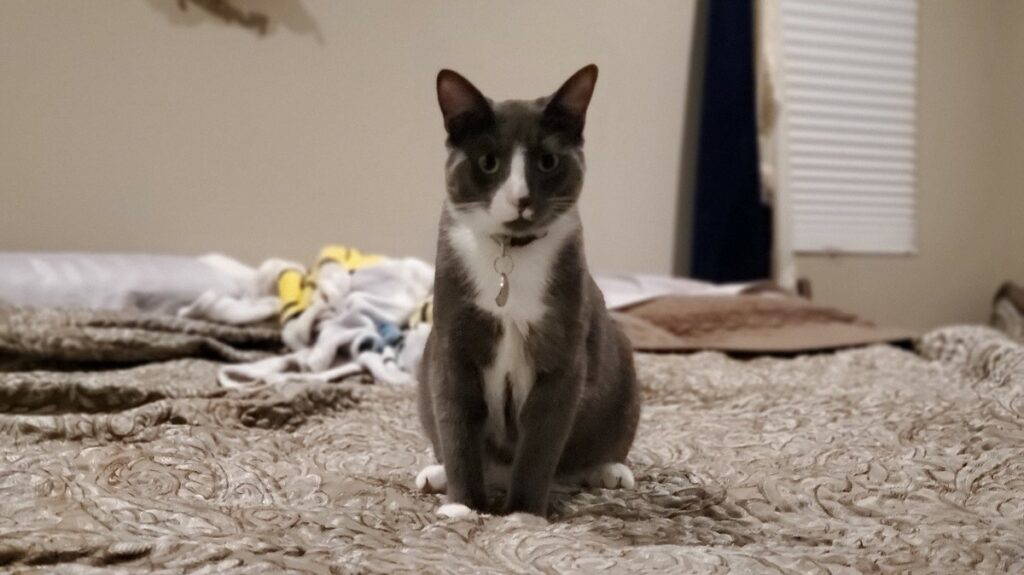We get it. Your cat is scratching their bottom like they’re auditioning for a dance video, and you are trying to avoid the cost and drama of a vet visit. But when it comes to treating worms in cats, this is one case where the shortcut could lead you in the wrong direction.
While over-the-counter solutions are tempting, treating your cat for worms without professional guidance can be ineffective or even dangerous. Let’s walk through what you need to know before you try to play vet from your kitchen cabinet.
Not All Worms Are the Same
The word “worms” might sound like one general problem, but it is actually a category of parasites, and different types require different treatments.
Here are the most common ones in cats:
- Roundworms: The most frequent offender, often passed from mother to kitten
- Tapeworms: Usually caused by fleas or ingesting infected rodents
- Hookworms: These feed on blood and can be quite dangerous
- Whipworms: Less common but still possible, especially in outdoor cats
If you treat your cat for the wrong type of worm, you are basically tossing medicine at a problem and hoping it works. Spoiler alert: it probably won’t.
Over-the-Counter Treatments Are Hit or Miss
There are plenty of dewormers sold online and at pet stores that claim to solve your problem. The reality is that some of these are under-dosed, outdated, or simply ineffective. Worse, others can be harmful if your cat has a reaction, or if you give the wrong dose.
Without knowing:
- The exact type of worm
- The right dosage for your cat’s size and age
- Whether your cat has underlying health issues
You are guessing. And when it comes to your cat’s health, guessing is not a great strategy.
Symptoms Can Be Misleading
Maybe your cat is throwing up, has diarrhea, or you saw something “wiggly” in the litter box. These are common signs of worms, but they can also be symptoms of entirely different issues, like allergies, infections, or other parasites.
If you treat your cat for worms and they do not actually have worms, you are not only wasting time, but you might be ignoring a more serious issue that needs attention.
The only way to know for sure? A proper diagnosis, usually involving a simple fecal test done by a vet. It is not glamorous, but it is accurate.
The Risks of Delaying Treatment
Let’s say your cat really does have worms. What is the harm in trying to treat it at home first?
A few things can go wrong:
- Prolonged symptoms like vomiting, diarrhea, or weight loss
- Contamination of your home with worm eggs or larvae
- Transmission to other pets or even humans
- Anemia or intestinal damage in serious cases
Worms are not just gross. They can cause real health problems if left untreated or if treated improperly. This is especially true for kittens or senior cats with weaker immune systems.
The Best Course of Action
Here is what most vets recommend, and for good reason:
- Get a diagnosis: A quick trip to the vet and a stool sample is all it takes
- Use the right medication: Prescription dewormers are targeted, effective, and safe when dosed correctly
- Follow up: In some cases, a second round of treatment or another stool test is needed
- Prevent reinfection: Regular flea control, keeping litter boxes clean, and reducing hunting behavior can help
Yes, it costs a little more. But it solves the problem safely and efficiently the first time around.

Dear Joey, Let me tell you about a thing called “the worms”. Trust me, it’s no party. Imagine, one moment you’re lounging on your favorite pillow, the next moment you feel like there’s a dance party happening in your belly. And not the fun kind with treats and laser pointers. No, it’s more like a bunch of uninvited, wiggly guests throwing a rave. But don’t worry, our human servants have these magic treats that send the pesky party crashers packing. #BellyRaveOver #DewormingTime
Winston
Can You Ever Treat Without a Vet?
There are a few situations where you might use over-the-counter dewormers, like:
- You live in a remote area without easy access to a vet
- You have used a vet-recommended product in the past for the same type of worm
- You are using a vet-approved broad-spectrum preventative, like a monthly topical
But even in these situations, it is wise to have a vet on standby in case the symptoms do not improve.
Final Thoughts: When in Doubt, Call the Vet
We know the vet’s office can be expensive and stressful. But when it comes to worms in cats, the safest and most effective treatment usually starts with professional care. Over-the-counter options are a gamble, and guessing wrong could make things worse, not better.
If you are suspicious your cat has worms, call your vet, get a diagnosis, and then treat the problem with confidence. Your cat deserves to feel better, and you deserve to not be googling “weird noodle things in cat poop” at 3 a.m.
Sources:
Parasite Control in Cats https://www.avma.org/resources-tools/pet-owners/petcare/internal-parasites-cats
Worms in Cats: Diagnosis and Treatment https://vcahospitals.com/know-your-pet/intestinal-parasites-in-cats
Over-the-Counter Dewormers vs. Prescription https://www.petmd.com/cat/general-health/can-i-use-over-counter-dewormer-my-cat
Zoonotic Parasites from Cats https://www.cdc.gov/parasites/zoonotic.html
Recent Posts
Your Cat Might Be a Furry Little Healer… or at Least a Fuzzy Alarm System If you’ve ever had your cat suddenly become extra clingy when you’re under the weather, you’re not alone. From...
Cats are experts at hiding things, socks under furniture, their disdain for your playlist, and, unfortunately, symptoms of illness. In the wild, showing weakness could make them a target, so even...


